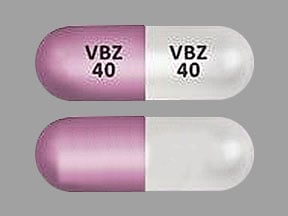
Ingrezza Coupons & Savings Card – Discount Prices from $7787.16
My prescription
Edit
40MG, Ingrezza (30 Capsules)
Select pharmacy

Albertsons
$7787.16
COUPON PRICE
Walmart
$8100.78
COUPON PRICE
Walgreens
$8130.19
COUPON PRICEIngrezza savings card
Show this card to your pharmacist
Albertsons
$7787.16
BIN
ID
PCN
GRP
019876
LHAF99494F
CHIPPO
LHX
Powered by
Related VMAT2 inhibitors prescriptions
More prescriptions for tardive dyskinesia
Related VMAT2 inhibitors prescriptions
More prescriptions for tardive dyskinesia
Price history for Ingrezza
30 Capsules, 40MG
Average retail price for Ingrezza
Average SaveHealth price for Ingrezza
Our price history data is based on aggregated prescription data collected from participating pharmacies in America. Our prescription data updates daily to reflect the latest price changes. If you notice a missing data point, it means there wasn't sufficient data available to generate a monetary value for that date.
*Retail prices are based on pharmacy claims data, and may not be accurate when we don't have enough claims.
Ingrezza dosage forms
Dosage Quantity Price from Per unit 40MG 30 Capsules $7787.16 $259.57 60MG 30 Capsules $8514.75 $283.82 80MG 30 Capsules $8514.75 $283.82
| Dosage | Quantity | Price from | Per unit |
|---|---|---|---|
| 40MG | 30 Capsules | $7787.16 | $259.57 |
| 60MG | 30 Capsules | $8514.75 | $283.82 |
| 80MG | 30 Capsules | $8514.75 | $283.82 |
What is INGREZZA used to treat?
Ingrezza is used to treat tardive dyskinesia, a condition characterized by involuntary, repetitive body movements.
Why is INGREZZA so expensive?
The cost of INGREZZA can be attributed to several factors. These include the research and development expenses involved in bringing the medication to market, the costs associated with clinical trials, and the regulatory processes required for approval. Additionally, the pricing may reflect the drug's effectiveness in treating tardive dyskinesia, a condition with limited treatment options. Manufacturing costs, distribution, and the company's pricing strategy also play a role in the overall expense.
How much does INGREZZA cost?
The cost of INGREZZA can vary based on factors such as insurance coverage, pharmacy location, and dosage. It is recommended to check with a local pharmacy or healthcare provider for the most accurate and up-to-date pricing information. Additionally, patients may explore patient assistance programs or manufacturer discounts that could help reduce the cost.
Who should not take INGREZZA?
Individuals who should not take INGREZZA include those with a known hypersensitivity to valbenazine or any of its components. Additionally, it is important for individuals with certain medical conditions or those taking specific medications to consult with their healthcare provider before starting INGREZZA, as it may not be suitable for everyone. It is crucial to discuss all medical history and current medications with a healthcare professional to determine if INGREZZA is appropriate.
Can people with Parkinson's take INGREZZA?
Ingrezza (valbenazine) is primarily used to treat tardive dyskinesia, a condition that can occur as a side effect of certain medications. It is not typically used for Parkinson's disease. Patients with Parkinson's should consult their healthcare provider to determine the most appropriate treatment options for their specific condition.
